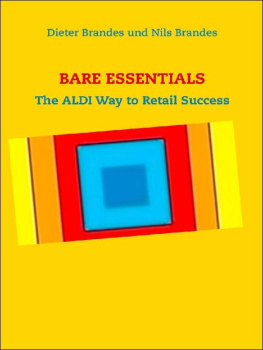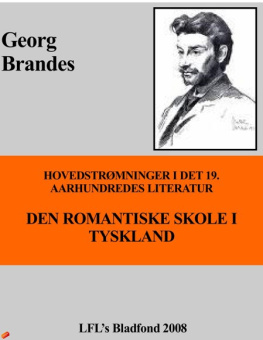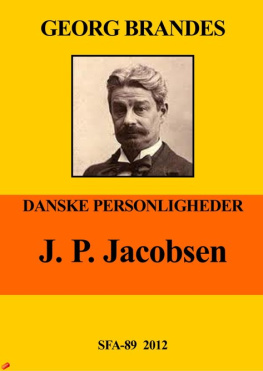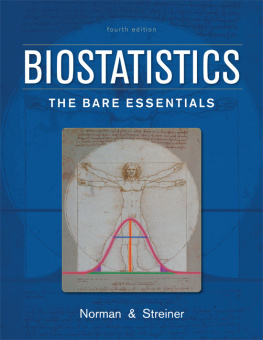Dieter Brandes - Bare Essentials: The ALDI Way to Retail Success
Here you can read online Dieter Brandes - Bare Essentials: The ALDI Way to Retail Success full text of the book (entire story) in english for free. Download pdf and epub, get meaning, cover and reviews about this ebook. City: Norderstedt, Germany, year: 2011, publisher: BoD-Books on Demand, genre: Romance novel. Description of the work, (preface) as well as reviews are available. Best literature library LitArk.com created for fans of good reading and offers a wide selection of genres:
Romance novel
Science fiction
Adventure
Detective
Science
History
Home and family
Prose
Art
Politics
Computer
Non-fiction
Religion
Business
Children
Humor
Choose a favorite category and find really read worthwhile books. Enjoy immersion in the world of imagination, feel the emotions of the characters or learn something new for yourself, make an fascinating discovery.
- Book:Bare Essentials: The ALDI Way to Retail Success
- Author:
- Publisher:BoD-Books on Demand
- Genre:
- Year:2011
- City:Norderstedt, Germany
- Rating:4 / 5
- Favourites:Add to favourites
- Your mark:
- 80
- 1
- 2
- 3
- 4
- 5
Bare Essentials: The ALDI Way to Retail Success: summary, description and annotation
We offer to read an annotation, description, summary or preface (depends on what the author of the book "Bare Essentials: The ALDI Way to Retail Success" wrote himself). If you haven't found the necessary information about the book — write in the comments, we will try to find it.
Bare Essentials: The ALDI Way to Retail Success — read online for free the complete book (whole text) full work
Below is the text of the book, divided by pages. System saving the place of the last page read, allows you to conveniently read the book "Bare Essentials: The ALDI Way to Retail Success" online for free, without having to search again every time where you left off. Put a bookmark, and you can go to the page where you finished reading at any time.
Font size:
Interval:
Bookmark:

The authors:
Dieter Brandes contributed substantially for many years to the policies which successfully steered ALDI towards success, both as a regional general manager and then for ten years as managing director of the Executive Board. Since 1993 he has been an independent consultant in the fields of organization and strategy development. Dieter Brandes acquired ALDI's stake in Albertson's and Trader Joe's in the US. With their consulting firm Institute of Simplicity he and his son, Nils Brandes, advised discount projects in Turkey, Poland, South Korea, Saudi Arabia, Mexico and Colombia. Both issue regular Coachingletters on Simplicity which are an efficient and inexpensive way to learn about Management of Complexity. Dieter Brandes and Nils Brandes, both hold a degree in business administration.
The Book:
Title in Germany "Konsequent einfach. Die ALDI Erfolgsstory". English title: Bare Essentials The ALDI Way to Retail Success. Sold 100.000 times in Germany. Since 1998 on most of the Bestseller's lists; sometimes No. 1. Translated into Chinese, Korean, Portuguese, Dutch.
Facts on ALDI:
Together with Wal-Mart and Tesco ALDI is the top retailer in the world. Operating a limited assortment of only 1800 articles they achieve revenues of more than 77 Billion USD. Per single item they get up to 14 times the revenue Wal-Mart makes.
Since 50 years Karl and Theo Albrecht are following the mission which Karl once established: "Our only consideration in pricing a product is how cheaply we can sell it, not how much people will pay for it."
Together the owners Karl and Theo Albrecht are the wealthiest men in the world. According to Young and Rubican, ALDI is the most famous brand in Germany since more than ten years - more famous than Coca Cola and Mercedes. According to German top managers ALDI is the best organized company in Germany (manager magazin).
ALDI operates 8000 stores in Europe plus more than 1000 stores in the US and Australia.
Die Deutsche Bibliothek CIP-Einheitsaufnahme
Brandes, Dieter:
Konsequent einfach: die ALDI-Erfolgsstory / Dieter Brandes.
4. Aufl., Frankfurt/Main; New York: Campus Verlag, 1999
ISBN 3-593-35904-9
Those 1800 articles are sold out of 1000 boxes which are partly mixed with different items of the same kind, same price and same barcode i.e. one box with 3 flavours of jam. In this book therefore we will always talk about 1000/1800 articles
"The essential is invisible to the eye."
The Little Prince, Antoine de Saint-Exupry
Soon after I left ALDI, an editor from the major German news weekly Der Spiegel called me and asked if I would be open to the idea of writing about the company. In keeping with the custom of ALDI people of placing a high value on discretion I turned down his invitation. This uncompromising opposition to any public appearances, a typical example of ALDI's asceticism, is one which I have always supported. And I still consider such a principle as appropriate for the vast majority of companies today. Most corporate statements and executive interviews are promotional and their main effect is to satisfy the vanities of the CEO or his managers. Frequently they help lay the groundwork for selling the company and merely show its strengths. This sort of information can only be useful to the competition, not to the customer but aren't customers what it's all about?
Today, as the ALDI concept is some 50 years old and both the company's founders, Karl Albrecht is over the age of 80 (in the meantime Theo Albrecht died in 2010 at the age of 88), I feel the time has come to write about the "ALDI phenomenon" - from a distance, after a number of years accumulating new experiences at other companies and with an eye for the essentials. It really is surprising that to date not a single book can be found in the book stores about this "miracle", although many economists and journalists have written about it again and again.
The principles of confidentiality and the loyalty of the employees have prevented the whole picture from being publicized. But in recent years a few employees have switched to competitors and have presumably taken their figures with them although - as at every other company - this is of course prohibited. In this way, it can be assumed, more and more accurate figures from ALDI have found their way into business publications and cleared up some of the uncertainty regarding the company's business standing. So the public is no longer solely dependent on estimates. And yet, in general, these figures are more heavily guarded than the codes of the secret services, as the industry specialist Hans Otto Eglau remarked who has been following developments at ALDI since the company was founded.
Astrid Paprotta and Regina Schneider, who in their bestseller cookbook ALDIdente wrote a small homage to ALDI which nearly gave the company cult status, call ALDI "a strange empire". Everyone is familiar with it, but hardly anybody talks about it. Perhaps because ALDI is just something natural, nothing special.
The purpose of this book is not to supply the reader with the very latest official statistics in a quantitative study of ALDI. Nor do I consider this essential, although people repeatedly ask questions related to turnover, the break-even point or the net margin. What is so interesting about these isolated figures? Isn't understanding the inner workings of this successful company more important? In regard to quantitative data, companies can only be compared to a limited extent anyway; even concretely as in the case of benchmarking, figures such as these are not very helpful. For competitors it is much more important to think about the purpose and goals of their own business. What counts for success is primarily the collection of virtues also known as the corporate culture. But I will also discuss organization and leadership as well as vital business principles. The description will make clear that nearly everything really is as straight-forward and, basically, simple as it appears.
I consider it thoroughly possible to export the important insights which work for ALDI to many other companies in completely different industries. Entrepreneurs who have recognized that they can put some aspects of ALDI's practices to use are reaping the benefits.
Roller, Germany's largest furniture chain store years ago, is happy to refer to itself as the "ALDI of the furniture industry". The company commits itself to being the price leader at every one of its locations. Hans-Joachim Tessner, the company's founder, came up with the idea of creating a furniture discount outlet following the examples of This was his way of expressing his recognition of ALDI's success and revealing his business management principle of following ALDI's methods as closely as possible.
By describing some of ALDI's characteristics and principles, it will become clear where decisive mistakes are made in retailing. I am sure that my departure from ALDI was necessary for me to be able to recognize and judge this.
My experience outside of Germany in particular clearly revealed ALDI's special qualities to me. The most important experience involved setting up a discount chain modeled after ALDI in Turkey named BIM. Expanding ALDI outlets to The Netherlands, Belgium and Denmark, as well as the purchase and management of participations in the USA (Albertsons and Trader Joes) were also very rewarding. My experiences in German companies were also varied. When you see how things are done there, you feel compelled to point out how - considering ALDI - they could do these so much better.
Next pageFont size:
Interval:
Bookmark:
Similar books «Bare Essentials: The ALDI Way to Retail Success»
Look at similar books to Bare Essentials: The ALDI Way to Retail Success. We have selected literature similar in name and meaning in the hope of providing readers with more options to find new, interesting, not yet read works.
Discussion, reviews of the book Bare Essentials: The ALDI Way to Retail Success and just readers' own opinions. Leave your comments, write what you think about the work, its meaning or the main characters. Specify what exactly you liked and what you didn't like, and why you think so.












